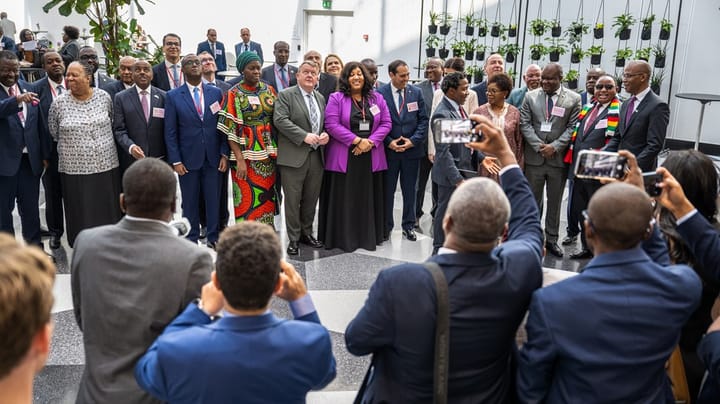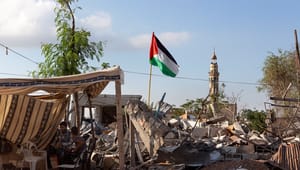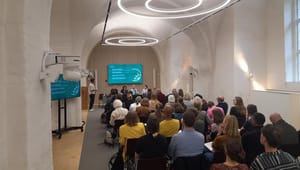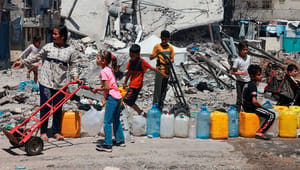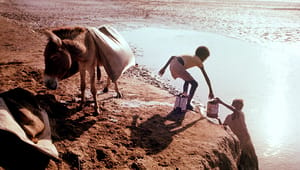Paneuropæisk alliance: EU's asylhindringer skal fjernes

Generalsekretær, ECRE
DEBAT: Når flygtninge afvises ved EU's grænser, skubbes problemerne videre til EU's naboer. Derudover har Dublin-systemet fejlet, mens menneskerettigheder overtrædes rundt i EU, skriver Michael Diedring, generalsekretær for ECRE, der repræsenterer 81 nødhjælpsorganisationer i Europa. Indlægget er på engelsk.


David Laungaard Lose
Marketing AnalystAf Michael Diedring
Generalsekretær ved The European Council on Refugees and Exiles (ECRE)
War and persecution have forced more people to flee their homes than at any time since World War II and developing countries are hosting the overwhelming majority (86 %) of the world’s refugees.
Lebanon alone, a country of 4 million people, is hosting well over one million refugees who have fled Syria. In comparison, the 28 countries of the EU, with a population of 507 million people, received just 378,155 new asylum applications last year.
The EU has equipped itself with a Common European Asylum System with the aim of ensuring fair and humane treatment of asylum seekers in Europe, wherever they arrive. While the aim is noble, the reality for the asylum seekers who face this common system is harsh and unwelcoming.
Mød denne måneds debatpanel her.
Udviklingsdebatten på Altinget : udvikling har til formål at fokusere og styrke den udviklingspolitiske debat i Danmark. Løbende inviterer Altinget : udvikling eksperter, politikere, fagfolk og interesseorganisationer til at debattere udvalgte emner og/eller problemstillinger inden for udviklingsområdet.
Bland dig gerne i debatten ved at sende en mail til [email protected].
Deterrence is the current watchword when it comes to Europe’s response to people seeking to access protection in Europe. From fences and other barriers to accessing European territory and to actually submit an asylum claim, to being left homeless or shifted around Europe, people who have survived war and persecution often experience seeking protection in Europe as an obstacle course.
Human Rights are being violated
The German NGO, Pro Asyl highlighted last year testimonies of refugees who detailed how Greek coastguard allegedly ill-treated refugees upon apprehension, detained them arbitrarily on Greek soil without any registration and then deported them back to Turkey, in breach of international law.
Deterrence is the current watchword when it comes to Europe’s response to people seeking to access protection in Europe.
Michael Diedring
Generalsekretær, ECRE
In Bulgaria, one of the first measures adopted in response to the increase in refugees from Syria arriving in 2013, was to intensify border controls along the Bulgarian-Turkish borders, due to which arrivals dropped from 1,000 per week to less than 100 in a month.
Spain is currently attempting to give legal cover to the documented practice of summary expulsions to Morocco from its enclaves in North Africa, Ceuta and Melilla. Earlier this year, in response to calls from Italy for the EU to take over Mare Nostrum, its search and rescue operation in the Mediterranean that has saved over 150,000 people, the UK announced that they would not support any future search and rescue operations in the Mediterranean, so as not to encourage more people to attempt the dangerous sea crossing.
Closed borders are moving problems
Those who believe the EU borders should be closed to refugees are not only ignoring their own national legislation and international commitments to protect people fleeing war and persecution, they are implying that other countries should deal with the issue. Is it fair, does it make sense for EU countries to ask Turkey to take more responsibility for refugees?
Turkey is currently hosting over a million refugees from Syria. Most people arriving irregularly in Europe (and there are hardly any ways for refugees to come to Europe legally and in safety) do it through Italy, departing from Libya. Should refugees be persuaded to remain in Libya, a country plunged into chaos and violence?
Many refugees who make it to the EU have lost members of their families and have been exposed to the brutality of smugglers. If something kept them going, it was the hope that they will arrive to a safe place where they could rebuild their lives. But what they experience when they first arrive in Europe is often far from a warm welcome at the end of an exhausting journey.
Indeed, the courts continue to make it clear that safety in another European Member State cannot be assumed, thus questioning the automatic functioning of the Dublin Regulation that establishes which state is responsible for examining an asylum application.
The Dublin System is not sufficient
As acknowledged by the European Court of Human Rights, asylum seekers in Italy may be left homeless or in overcrowded facilities. The Court has also repeatedly condemned Greece for degrading treatment of asylum seekers and other Member States do not formally return asylum seekers to Greece.
In view of these degrading reception conditions, who could fault anyone who moves where they have family, community ties or speak the language if it would help them have a place to sleep at night or get a job.
The Dublin system is not serving its aim of deterring multiple asylum claims and determining promptly the responsible State to ensure effective access to an asylum procedure. Furthermore, it is keeping those refugees who can’t afford to continue travelling irregularly, locked in places where they hold little hope for any kind of future.
The current policies of many European countries aimed at discouraging refugees from seeking protection within their borders cannot be the best that Europe can do for the people who have fled their homes to try to find safety. Europe, as a global player, must be part of the solution for people fleeing war and persecution.
